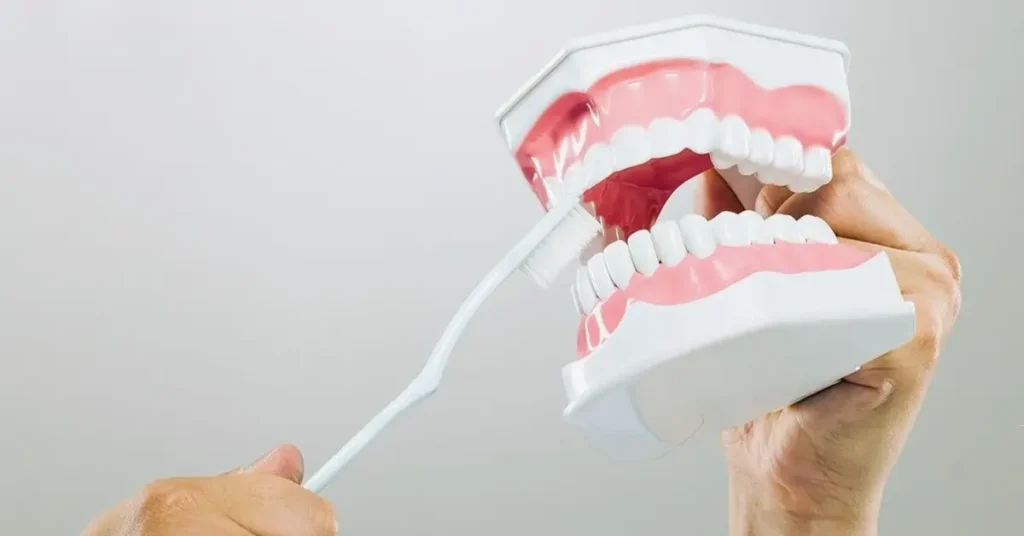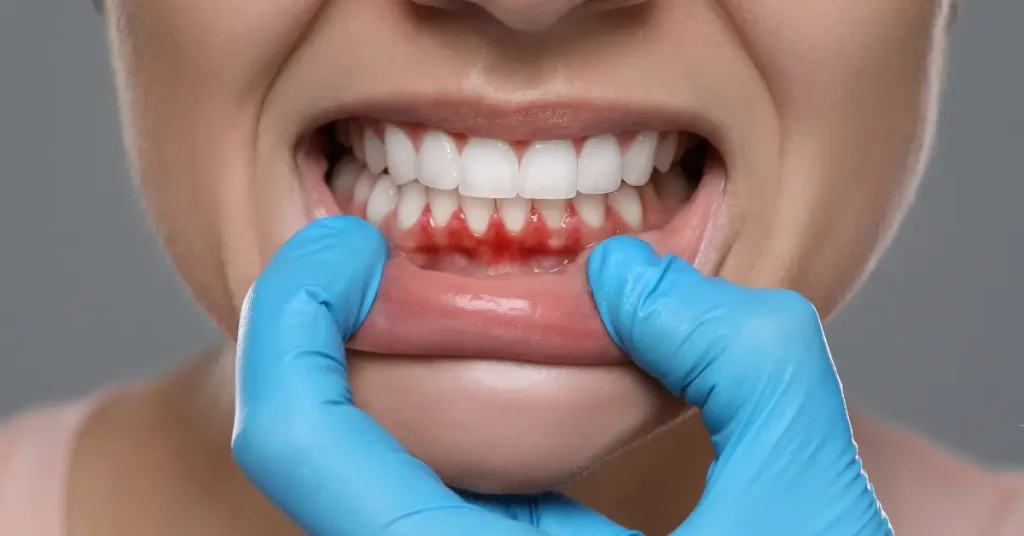You brush your teeth twice a day. Maybe even three. You floss (most of the time). You’ve tried mouthwash, chewing gum, and those fancy tongue scrapers. And yet… the bad breath lingers.
If you’re dealing with bad breath even after brushing, you’re not alone—and no, it doesn’t mean you’re doing something wrong. In fact, persistent bad breath (also called halitosis) is one of the most common concerns patients bring up at Hollywood Family Dentistry. Let’s dig into what might be going on and what you can do if you are Having Bad Breath Even After Brushing.
What Causes Bad Breath in the First Place?
At its core, bad breath happens when bacteria in your mouth break down leftover food particles and release sulfur compounds. These compounds are the culprits behind that unpleasant odour.
But brushing alone doesn’t always tackle the full picture. Here are some common reasons your breath might not be as fresh as you’d like, even after a thorough brushing:
1. You’re Not Brushing Your Entire Mouth

Most people focus only on their teeth when brushing. But did you know that your tongue harbours a large number of odour-producing bacteria?
If your tongue looks white or coated, that buildup may be contributing to bad breath. Use a tongue scraper or your toothbrush to gently clean it daily.
Don’t forget to brush along the gumline, inside of your cheeks, and roof of your mouth too—bacteria love to hide there.
2. Dry Mouth Is Sneaking Up on You
Saliva is your mouth’s natural cleaner. It helps wash away food particles and neutralize acids. But if your mouth is dry (a condition known as xerostomia), bacteria get free rein to multiply and cause odor.
Dry mouth can be caused by:
- Dehydration
- Medications (antihistamines, antidepressants, etc.)
- Mouth breathing
- Certain medical conditions (like diabetes)
Try drinking more water, using sugar-free lozenges to stimulate saliva, or asking your dentist about artificial saliva products.
3. You May Have Gum Disease

When plaque builds up under the gumline, it creates the perfect environment for harmful bacteria. This can lead to gingivitis or more advanced periodontitis, both of which can cause persistent bad breath, even after brushing.
Other signs to watch for:
- Red, swollen, or bleeding gums
- Gum recession or sensitivity
- Loose teeth
If this sounds familiar, it’s time to schedule a professional dental cleaning and checkup. At Hollywood Family Dentistry, we’ll assess your gums and create a personalised plan to restore your oral health.
4. You’re Not Flossing Daily
Brushing alone only cleans about 60% of your tooth surfaces. The remaining 40%—between your teeth—is a prime area for food and bacteria to hide out and cause odour.
Skipping flossing is like washing only part of your car and wondering why it still looks dirty.
Make flossing a daily habit (yes, every day!). If traditional floss is tricky, try floss picks or a water flosser.
5. Your Diet May Be Working Against You
Certain foods are known bad breath offenders (we’re looking at you, garlic and onions), but what you don’t eat can also contribute. A low-carb, high-protein diet, for example, can lead to a condition called “keto breath,” which smells fruity or metallic.
Other culprits:
- Coffee
- Alcohol
- Sugary snacks
Eating crunchy fruits and veggies like apples or carrots can help naturally clean your teeth and stimulate saliva.
6. Underlying Health Conditions
Sometimes bad breath isn’t just about oral hygiene. It can be a sign of something else going on in the body. Conditions like:
- Sinus infections
- Acid reflux (GERD)
- Diabetes
- Tonsil stones
- Liver or kidney issues
If you’ve ruled out dental causes and the odour persists, it may be time to consult your physician.
Also Read on 10 Signs You’re Not Taking Care of Your Teeth
7. Your Dental Appliances Need a Deep Clean
If you wear retainers, dentures, night guards, or aligners like Invisalign®, cleaning them regularly is crucial. Bacteria can build up quickly on these surfaces, leading to an odour that won’t go away with brushing your teeth alone.
Use a designated denture cleaner or a gentle non-alcoholic rinse recommended by your dentist—never hot water, which can warp the appliance.
What You Can Do Today for a Fresh Breath
- Brush twice a day—and brush your tongue
- Floss daily
- Stay hydrated
- Avoid odour-causing foods before important events
- Rinse with an alcohol-free mouthwash
- Visit your dentist every 6 months
At Hollywood Family Dentistry in Portland, we’re here to support your whole-mouth health—not just the parts you see in the mirror. If you’re struggling with bad breath even after brushing, don’t be embarrassed. We’ve helped many patients freshen up their smiles and boost their confidence—and we’d love to help you too.
Ready to Get to the Bottom of Bad Breath?
Let’s make sure your oral health is as fresh as your toothbrush. Book an appointment with Dr. Jaime Holtz and our caring team today. Whether it’s a routine cleaning, a deep gum check, or a custom plan to treat dry mouth, we’re here to help you breathe easy again.
Find us on Map: Hollywood Family Dentistry
Call us at +1 503-281-9612
Visit us at 1735 NE 40th Ave, Portland, OR
Google Pin: https://tinyurl.com/cosmetic-dentist-in-portland
See how real patients transformed their smiles in our Smile Makeover case study from Portland.

